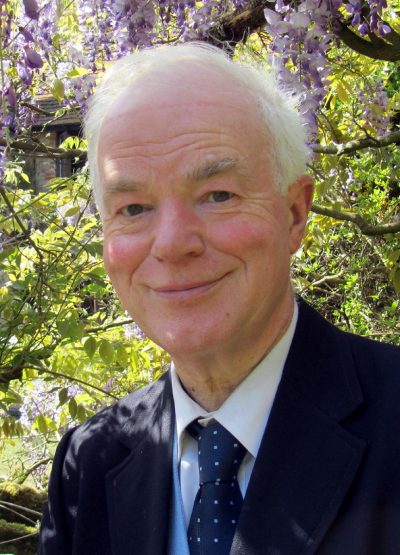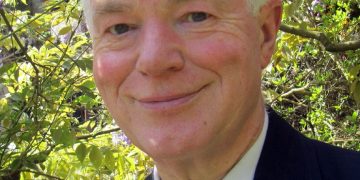CHARIS SYKESUD

Charis Sykesud is a London-based musician, whose number one love is playing the violin. As a freelance, she performs both orchestrally and in chamber ensembles. When she’s not playing the violin, Charis is often found writing programme notes or on a tennis court. She enjoys learning languages and reading, particularly early 20th Century fiction. Charis is known amongst her friends as something of a pedant for well-spoken and written English.
Joseph Francis

I grew up in Lincoln and served for four years in the Grenadier Guards, participating in royal ceremonial occasions such as Trooping the Colour in 2007. Following my military service, I worked for several London-based charities, where I developed expertise in community support, public service, and organisational management.
After completing my charitable work in London, I returned to Lincoln to pursue a career in engineering. I am currently in my final year of an English and Spanish degree at The Open University and have served on the Board of Education for Linguistics and Languages as a student representative. In addition to my studies, I hold a TEFL qualification and have taught English as a freelancer and through charitable organisations, supporting learners from diverse backgrounds.
Beyond my professional and academic pursuits, I am a dedicated bibliophile who values libraries and strongly advocates for universal access to education and knowledge.
Ray Ward

Ray Ward was born in Sheffield in 1947 and is retired after a career in libraries of many kinds in Sheffield, London, South Wales, Bristol, Leeds, Hastings, Brighton and, briefly, Saudi Arabia.
He is a Chartered Librarian and has a BA (Hons.) in Politics from the University of Hull. The English language is one of his main interests and he has been a member of the Society since 1989. He has been on the Committee since 2004.
His many other interests include space flight, astronomy, aviation, politics and quizzes. He has twice been on Mastermind and his subjects reflect his broad interests: Manned Space Flight in 1978 (though there had been a lot less of it then!), and The Life and Times of Anne Frank in 2006. He was on University Challenge (his team were finalists), and was the BBC Radio 4 Brain of Britain 2012.
Susan McKenna

Susan McKenna has a background in teaching English and French, sales, marketing, business development and management. She was Sales & Marketing Director with prestigious companies supplying consumer goods to retail in the UK and abroad from 2001 to 2016, then owner of her own consulting company.
Language has always been of paramount importance and delectation to her, both personally and professionally, not only in its rigour but also in its flexibility and infinite variety.
Susan describes herself as 'a purist-iconoclast'.
Peter Tompkins

Peter Tompkins was born in Liverpool in 1959 but has lived in the South-East since 1982, these days splitting his time between London and Cambridge and occasional trips to the Lake District.
Peter is a consulting actuary with Callund Consulting and spends his time consulting to overseas governments and international agencies on pension plans and their reform. Prior to that, he was a partner at PricewaterhouseCoopers and before that a partner at Lane Clark & Peacock.
His other interests include beekeeping, sundials, chamber music, rowing and hill walking. He is a trustee of the City Music Foundation and of the New Music Players and he is a Court Member of two liveries, the Wax Chandlers (of which he is a Past Master) and the Actuaries.
Bernard Lamb

Dr Bernard Lamb joined the Society as a life member in 1981 and has been President since 2007.
He is the author of three of the Society's research books based on national surveys, and of "The QES Practical Guide to Punctuation". "The Queen's English and How to Use It" is his latest publication.
For 40 years he taught and conducted research in genetics at Imperial College London where he studied and tried to improve his students' use of English. He is a Fellow of the Royal Society of Biology and of the Royal Society of Medicine, holds a BSc, a PhD and a DSc, and has written more than 100 scientific papers and books including "The Applied Genetics of Humans, Animals, Plants and Fungi" and "Human Diversity: Its Nature, Extent, Causes and Effects on People".
He has made more than 160 broadcasts about English on radio and TV. He has also been Chairman of the Society's London Branch since 1992.
Excellent English Prize 2021
The Queen’s English Society changes its name
At its Annual General Meeting on 24 September 2024, The Queen’s English Society voted on a Resolution to change the Society’s name to The King’s English Society.
The Resolution was carried by 75 votes to 7.
Over the next few days, this change will become apparent in the changing contents of this website, as each section is modified to take account of the implications of the Resolution. The website address will become: kingsenglishsociety.org
Why the change? Four years ago, the Society began to consider the course it should take following the inevitable death of Her Majesty Queen Elizabeth II. Sentiment at that time steered the members towards wanting to keep the name unchanged indefinitely. Since the Queen’s death in September 2022, the Society has noticed a marked downturn in applications for membership.
“It’s simple,” says Chairman Adrian Williams. “Most of our new members find us via the Society’s website. Before now, they have found the website by searching ‘Queen’s English’. Now they’re searching ‘King’s English’ – and not finding us. We need new members, to keep the Society active and growing in its mission to promote worldwide appreciation of the English language. Respect and affection for our late Queen are understandable; but now we have a King, and members of the public are becoming accustomed to a new era.”
WINNER 2022
THE TWENTY-FIFTH KING’S ENGLISH SOCIETY PRIZE FOR EXCELLENT ENGLISH
The twenty-fifth Prize for Excellent English covered material published in 2021.
The Joint Winners
Kathy Lette for Dear daughter, you can take me away any time…. The Sunday Telegraph Travel Section, 14/3/2021.
The humour and philosophy are superb throughout, with a terrific first paragraph.
Teenagers are God’s punishment for having sex in the first place. Living with a teenage daughter is like living with the Taliban; mothers aren’t allowed to dance, sing, flirt, laugh or wear short skirts. When my daughter, Georgie, was 13, I was sashaying toward the front door in high heels when she stormed after me, exclaiming, “What are you wearing? You are not going out like that. Go back to your room and change immediately!”
… Ouch. I wilted like day-old salad. Low self-esteem is hereditary – you get it from your teenage daughters.
… A mother delivers her child once vaginally, but then by car forever afterwards.
… Kids can be a great comfort in your old age, but they sure as hell make you reach it faster, too. Especially teenage girls taken hostage by their hormones. But, despite the exhaustion that comes with supervising digital detoxes, discouraging tattoos, side-boobs, piercings and the perception that Love Island contestants are role models, we mums love our progeny unconditionally.
Roger Lewis for Oozing and palely loitering. The Daily Telegraph, 6/2/2021.
This is a witty, scathing demolition-job in which the reviewer pillories the author for her hapless choice of banalities in pursuit of easy familiarity with the reader. The opening paragraphs are typical.
Situated for two centuries in the icy silence of his tomb, in the Cimitero Acattolico, Rome, John Keats at least hasn’t had to confront the Keatsians – the scholars, academics and other buffoons who have published books and papers about Keats’ Post-Newtonian Poetics, The Etymology of Porphryo’s Name, The Dying Keats: A Case for Euthanasia?, and, not forgetting, Keats, Modesty and Masturbation.
Now comes Lucasta Miller’s Keats: A Brief Life in Nine Poems and One Epitaph (Jonathan Cape, £17.99), which is one big farrago of cliché, jargon, mixed metaphor and general sloppiness. Page upon page is filled with phrases like under the skin, scruff of the neck, strapped for cash, cocked a snook, one fell swoop, punches far above the weight. Ad infinitum…
… His romantic imagination, we are vouchsafed, was “elastic, winged, capricious”, which conjures in my mind a picture of Ena Sharples’s knickers.
… I also wonder why Miller has taken Keats as her subject, as she is worried that he is already “canonised as a dead white European male”, which implies that only live black or Asian women are truly morally upright, possess fortitude and humility, and hence are permitted a voice.
Four other finalists, in random order
Nikki Haley for We could use some of Thatcher’s confidence and conviction. The Daily Telegraph, 6/11/2021. This is a brilliant and persuasive exposition of why capitalism has done and is doing wonders throughout the world. Her opening is sharp, eloquent and sums up her theme in a few words. It is a stirring political tour-de-force with fired-up rhetoric and sustained logical arguments in very clear English.
Capitalism is the greatest driver of prosperity and destroyer of poverty in history. It’s the single best way to help families, boost wages, create jobs, and discover the breakthroughs that improve all our lives.
…The Right must recapture its passion for economic freedom. It’s the only way to stop the socialist wave crashing over our country. Inspiring leaders show the way.
… Democrats are on the verge of creating the first cradle-to-grave welfare state in US history; a country where dependency is the default. It’s a guaranteed recipe for national decline.
… It’s time to face the truth: Spending trillions of dollars won’t solve our problems. Spending trillions of dollars is the problem.
… We need to describe what capitalism has done – namely, lifting more people out of poverty than anything else in human history. Economic freedom has doubled American life expectancy from 40 to 80. It has cut infant mortality from a third of children to practically none.
… America is not rotten. America is not racist. Freedom and the rule of law are not tools of oppression. They are essential to providing opportunity for all.
Allison Pearson for The Church of England is abandoning its flock. The Daily Telegraph 14/7/2021.
She argues well on an important topic, with good rhetorical devices and a great build-up of rage within paragraphs.
… Having lost faith in the eternal verities, the CofE now makes stipendiary clergy redundant – some rural benefices of 10 churches have to share one vicar! – while lunging for relevance with lectures like the one immortally entitled “The Church and the Clitoris”. Er, it’s been a while since I was a Sunday school teacher but isn’t the G in “G-spot” supposed to stand for God?
… The new “growth strategy” is called Myriad. It means getting rid of the clergy with their tedious theological knowledge about, you know, the Bible.
Flog the vicarages! Abandon the churches, centre of our communities for centuries and a beloved part of the spiritual geography of these islands! Dispense with those annoying old parishioners – the ghastly people probably vote Tory anyway!
… Apparently, there is no easy way for sacking bishops, even ones who despise half their congregation. How terribly convenient. Make no mistake, the Church is abandoning its flock and expects to get away with it.
Ariella Budick for Drawn to darkness and light. Financial Times ‘Life and Art’, 19-20/6/2021.
This is a well-written review of a show of Cezanne’s drawings, showing insight into the artist’s personality and versatility. There are good descriptions and turns of phrase.
In the dim light of a drawing gallery at the Museum of Modern Art in New York, Cézanne’s jagged strokes flicker and twist, refusing to cohere. “There is no line,” the artist insisted and he avoided defining contours or marking out boundaries between substance and air. A bather’s leg dissolves in a nest of twigs. A melon on a table quivers with pleasure or dread. The cumulative effect is electrifying.
… He was gripped by apples, obsessed with a specific mountain, bedevilled by bevies of nudes. With a mixture of fervour and labour, he produced sheaves of doodles, cramming dozens of separate drawings on to a single page that he sometimes kept working on for many years.
… Bloodthirstiness was never far from Cezanne’s imagination, even though he later buried it beneath veneers of peel or rind. In “Still Life With Apples, Pears and a Pot” (1900), the handle of a blue-black knife hovers menacingly above the carnal cleft of blushing pears.
Tom Chivers for London Clay: Journeys in the Deep City. London: Doubleday, 2021, starting at page 208.
This is well-researched and well-written book, presenting many interesting facts in an easily digested form. This chapter starts with an excellent paragraph about rain.
The rain begins at midday and doesn’t stop till after nightfall. At first it’s a gusty mizzle, then torrential, monsoon-heavy, soak-to-the-skin. On a day like this, I’m finding lost rivers everywhere. They bubble up between paving slabs, gurgle from raging manholes, pool in the gutters. They run down my waterproof jacket and into my shoes, persistent rills of rainwater from London’s toxic skies.
… Around the turn of the twelfth century, de Mandeville donated the manor to the Abbey, a down payment on eternal salvation.
I fold up the Streetfinder and wedge it between the Sullivans. Bits of map keep falling off and working their way to the bottom of my rucksack, to the place where biros go to die.
… Could this be a lost river, hiding in plain sight in the streets of Pimlico? Or a culvert from the draining of the marsh? A dog goes sniffing at my leg, a bull terrier with an eye patch.
… Language is like a rock; it comes in many forms. Some can be eroded, chipped away, others changed by heat and pressure. Here language is durable as diamond. A millennium has passed and yet this name, Longmore, persists.
The Society's name: The King's English Society
'The King’s English’ or ‘The Queen’s English’ is a colloquial term that, in common parlance, denotes ‘standard’ or ‘correct’ English; its use is metaphorical, not signifying any literal proprietorship by the monarch. Indeed, the English actually used by the monarch in speech has been commonly heard over our airwaves for less than a century.
Our Society was formed during the reign of the late Queen Elizabeth II and named The Queen’s English Society to echo its purpose in upholding the standards that the Queen’s English was held to represent.
In 2021 the possibility was put to the members of the Queen’s English Society that the Society’s name might change upon the sad event of her death, and a resolution was passed by a majority of 96% of voting members to retain the name with which the society had been formed. At the Society’s AGM in September 2022, after the Queen’s death, that decision was upheld as a mark of respect, although it was always open for reconsideration in future.
At the Annual General Meeting on 24 September 2024, a Resolution to change the name to The King's English Society was carried by 75 votes to 7.
The Queen’s English Society changes its name
At its Annual General Meeting on 24 September 2024, The Queen’s English Society voted on a Resolution to change the Society’s name to The King’s English Society. The Resolution was carried by
WINNER 2022
THE TWENTY-FIFTH KING’S ENGLISH SOCIETY PRIZE FOR EXCELLENT ENGLISH The twenty-fifth Prize for Excellent English covered material published in 2021. The Joint Winners Kathy Lette for Dear daughter, you can take me away any time…. The Sunday Telegraph Travel Section, 14/3/2021. The humour and philosophy are superb throughout, with a terrific first paragraph. Teenagers are God’s punishment for having sex in the first place....
The Society's name: The King's English Society
'The King’s English’ or ‘The Queen’s English’ is a colloquial term that, in common parlance, denotes ‘standard’ or ‘correct’ English; its use is metaphorical, not signifying any literal proprietorship by the monarch. Indeed, the English actually used by the monarch in speech has been commonly heard over our airwaves for...







